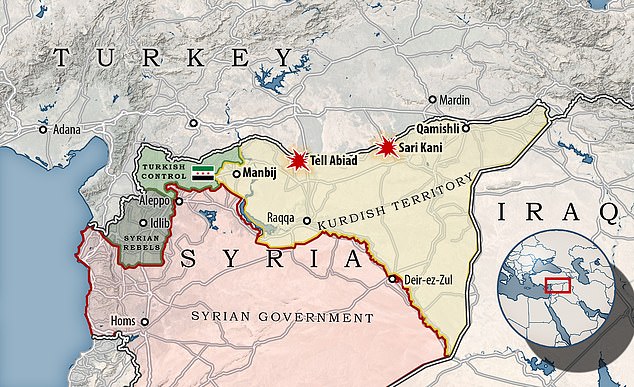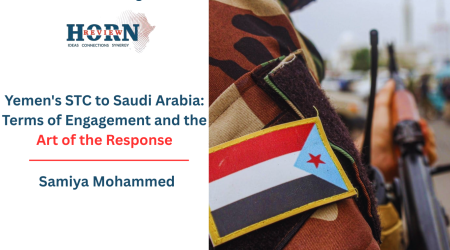
19
May
From Borderlands to Bedrock: Turkey’s Deepening Influence in Syria
The abrupt dramatic shift in Syria’s political landscape, with the recent fall of Bashar al-Assad’s decades-long regime, has brought a new era to the region’s complex dynamics. Ankara did not lead the swift offensive that accelerated this shift in itself. Turkey’s tacit support and pivotal role have positioned it as a principal architect of Syria’s future. While Iranian leverage may weaken, a meeting place of locals and outsiders with countervailing agendas is hurtling to delineate the future trajectory of this strategically placed country. Turkey, riding its unilateral relation with emergent Syrian power brokers, attempts to shape the country to suit its conception of political Islam with great regional implications as well as shifting the global equilibrium of power.
Ankara’s ascendant star is inextricably linked with its long-term engagement with Hayat Tahrir al-Sham (HTS), the group’s leadership that now exercises authority in Syria. HTS’s previous domination of Idlib province, bordering Turkey, had established a pragmatic symbiotic relationship with Ankara. It only grew stronger with the years, and Turkish officials ultimately established a relationship with Ahmed al-Sharaa, the enigmatic HTS leader and transitional president of Syria. This relation provides Turkey with considerable leverage in the policies and direction of the new Syrian regime.
Turkey has diverse interests in Syria. First, Ankara wants a stable and centralized state on its southern border. Without the long-term security issues of the previous regime’s instability and refusal to sign a political agreement. Second, Turkey is worried most of all about the self-governing Kurdish enclave in northeastern Syria dominated by the U.S.-allied Syrian Democratic Forces (SDF). Which Turkey views as an extension of the Kurdistan Workers’ Party (PKK), a terrorist group. Yet a recent announcement by Kurdish PKK militants declared their decision to dissolve after decades of conflict with Turkey, suggesting a potential compromise that could reshape Ankara’s threat assessment. Through establishing a powerful central Syrian government, Turkey wants to curb Kurdish autonomy and get rid of this perceived existential threat.
Ankara wishes to have a future Syria that is similar to its own conservative political landscape, Sunni majority but with minorities represented in government, provided they do not challenge the overall ideological direction. In seeking this, Turkey has rapidly embraced the legitimacy of the new Syrian government, dispatching senior delegations to Damascus to offer support.
Though Ankara publicly advocates a broad-based political transition, its main interest appears to be in enabling the emergence of a conservative Sunni-dominant order. Turkish authorities claim a belief that HTS leadership is pragmatic and that the model of governance under Turkey’s own Justice and Development Party (AKP) would be one worth following for HTS’s transition into a mainstream Islamist political force.
The economic role of Turkey in Syria is also impressive. Ankara can envision huge dividends from reconstruction activities in Syria, particularly if Arab Gulf states fund Arab and Turkish contractors, already whose share prices have skyrocketed following Assad’s removal. Also, Turkey plans to become an energy and transit hub in the region, very likely utilizing Syrian infrastructure and geography. Ankara’s transport minister has even suggested approaching Damascus for an Exclusive Economic Zone agreement to explore oil and gas in the Eastern Mediterranean, which would further aggravate tensions with Greece and Cyprus. Turkey is also mulling connecting to the Arab Gas Pipeline or constructing an alternative pipeline from Qatar, which would destabilize the Eastern Mediterranean Gas Forum.
However, Turkish aims in Syria have significant competitors and spoilers. Iran and Israel are both viewing the unfolding trend with horror and have the potential to intervene and undermine Turkish aims. Israel, while leveraging disintegration to target the supposed threat and reinforce the grasp it has, is against Turkish incursion into Syria for purposes of expanding on a continuously spreading competition. Israel’s assertive presence in neighboring Lebanon and continued military operations add yet another layer to the regional dynamics. Iran with its own past connection with the Assad regime and regional aspirations, might also seek to establish influence and perhaps back Kurdish forces to check Turkish dominance. This tension has partly forced Turkey to reopen the negotiations with the imprisoned PKK leader Abdullah Ocalan, marking a possible shift in its policy on the Kurdish issue.
The United States’s future policy in the region is unknown. The delicate balance of strong support for Israel, Iran opposition, and a desire to reduce American regional commitments played by the Trump administration will bear heavily on the calculations of all those involved. A plausible U.S. withdrawal from Syria could embolden Turkey to exert greater military pressure on Kurdish forces, whereas ongoing U.S. presence could restrain Ankara’s room to maneuver and enhance the Kurds’ negotiating hand.
In conclusion, Turkey is deeply invested in reshaping Syria’s future on the basis of a complex blend of security interests, ideological sympathies, and economic interests. Its strategic alignment with emerging HTS makes it particularly well-placed to determine the country’s government and direction. But the presence of other powerful regional actors with competing interests, and the uncertain future of American policy, ensures that the future of Syria is full of challenges and possibilities for continued instability. The interplay between Turkey, Iran, and Israel, all vying for influence, will ultimately determine the long-term stability and future course of this strategically located nation.
By Bethelhem Fikru, Researcher,Horn Review










